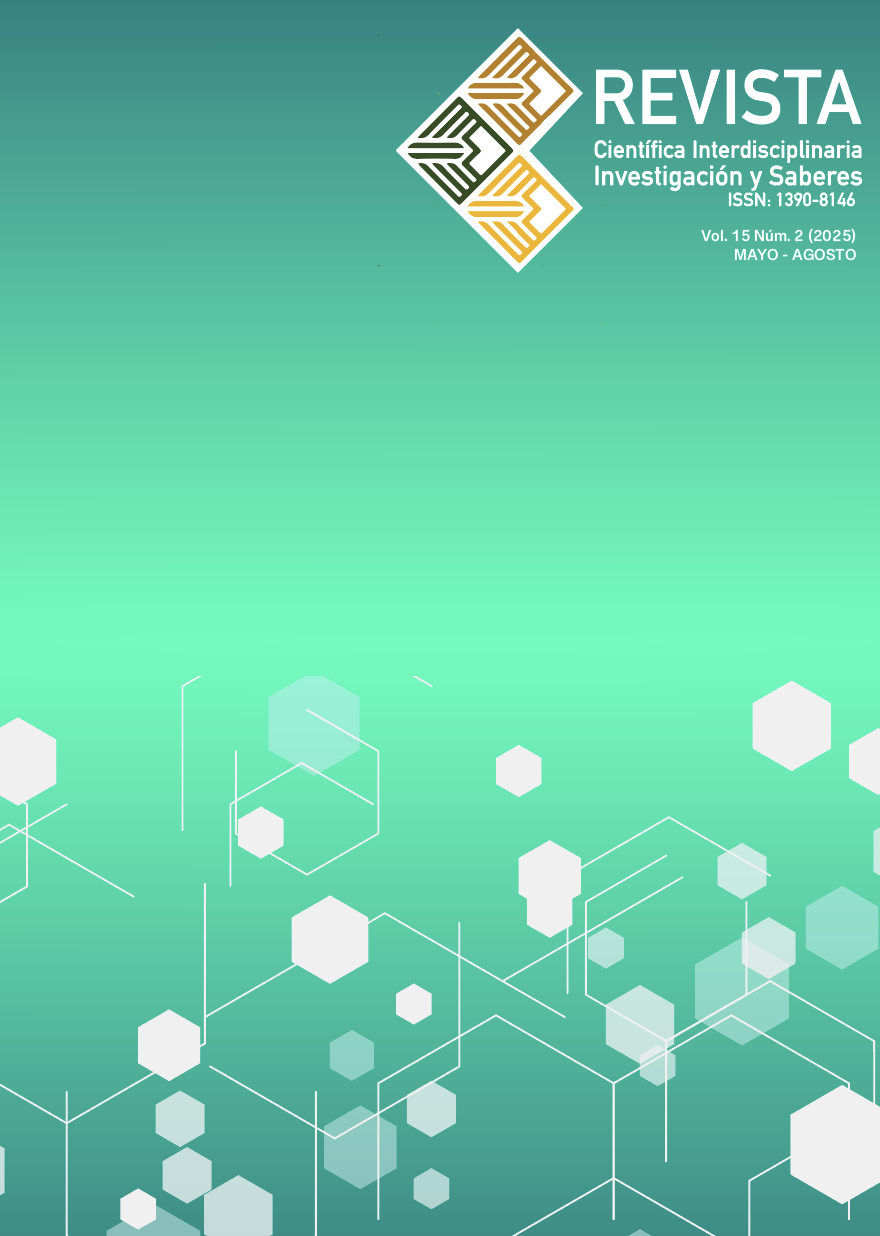La Integración De La Gestión Por Procesos Y La Auditoría De Gestión: Reflexiones Desde La Práctica Docente En La Educación Superior
Contenido principal del artículo
Resumen
El presente artículo reflexiona sobre la integración entre la gestión por procesos (GPP) y la auditoría de gestión (AG) desde la experiencia docente universitaria, destacando su aplicación como estrategia formativa en la educación superior. Mediante un enfoque cualitativo de tipo reflexivo y descriptivo, se sistematizan prácticas pedagógicas desarrolladas en asignaturas vinculadas a la administración y evaluación institucional, apoyadas en la revisión de literatura especializada, el análisis de casos de aula y la triangulación entre teoría y práctica. Los resultados evidencian que la enseñanza articulada de la GPP y la AG fortalece significativamente el desarrollo de competencias profesionales, entre ellas el pensamiento sistémico, la toma de decisiones basadas en evidencias, la evaluación crítica de procesos y la comprensión ética del control organizacional. Se demuestra que la utilización de herramientas como mapas de procesos, matrices de hallazgos, simulaciones de auditoría y análisis de indicadores permite conectar el aprendizaje teórico con la realidad institucional, promoviendo una formación más contextualizada, crítica y transformadora. No obstante, también se identifican limitaciones estructurales, como la escasa cultura de evaluación, la falta de disponibilidad de datos confiables y las debilidades conceptuales en el uso de enfoques de gestión por parte de las instituciones. A pesar de estos obstáculos, se concluye que el aula puede convertirse en un laboratorio de análisis y mejora institucional, siempre que la docencia se oriente a la aplicación real del conocimiento y al desarrollo de capacidades estratégicas. Finalmente, se plantea la necesidad de consolidar enfoques curriculares integradores, fortalecer la formación docente en metodologías activas y promover una cultura universitaria basada en procesos, calidad y mejora continua.
Detalles del artículo
Sección

Esta obra está bajo una licencia internacional Creative Commons Atribución-NoComercial-CompartirIgual 4.0.
La revista brinda acceso abierto inmediato a todo su contenido sobre el principio de que hacer que la investigación esté disponible de forma gratuita para el público para apoyar un mayor intercambio global del conocimiento.
De esta manera, el lector/a puede acceder a todos los contenidos de la revista desde el momento de la publicación sin coste ni obligación de suscripción.
La revista ienen licencia bajo el acuerdo de licencia internacional Attribution-NonCommercial-ShareAlike 4.0 International (CC BY-NC-SA 4.0). Los/as autores/as retienen los derechos de autor y se permite a terceros copiar, distribuir y hacer uso de los trabajos siempre que cumplan con los términos y condiciones establecidos por dicha licencia
- citar la autoría y la fuente original de su publicación (revista, editorial y URL de la obra).
- No se usen para fines comerciales.
- Si remezcla, transforma o crea a partir del material, deberá difundir sus contribuciones bajo la misma licencia que el original.
Puede encontrar más información al respecto en https://creativecommons.org/licenses/by-nc-sa/4.0/deed.es.
La Revista declina cualquier responsabilidad sobre posibles conflictos derivados de la autoría de los trabajos que se publican.
Cómo citar
Referencias
Bailey, L. W., de Peralta, M. S., & Aparicio, J. M. (2020). Teoría y prácticas de aprendizaje de la educación a distancia. Revista Científica Guacamaya, 5(1), 97–108.
Ballesteros, H. F. V., Íñiguez, E. L. G., Yánez, E. H. A., Cárdenas, E. P. Z., & Benavides, J. P. C. (2021). La educación online como alternativa a la educación presencial. Perfiles Educativos, 11(162), 178–196.
Cruz, J. A. G., Tiza, M. M. C., Isusqui, J. C. P., Gonzales, C. A. D., Inga, C. V., & Silva, M. O. C. (2023). Educación a distancia y virtual: calidad y sostenibilidad en la educación.
European Commission. (2019). Educación digital en las escuelas europeas. Eurydice Report. Publications Office of the European Union.
Garcés, G. (2020b). A literature review on leadership qualities among Project Managers of building refurbishment. Revista Ingeniería de Construcción, 35(1), 45–59. https://doi.org/10.4067/S0718-50732020000100045
González-Zamar, M. D., Abad-Segura, E., & Belmonte-Ureña, L. J. (2020). Aprendizaje significativo en el desarrollo de competencias digitales. Análisis de tendencias. IJERI: International Journal of Educational Research and Innovation, (14), 91–110.
Gutiérrez Provecho, L., López-Aguado, M., García Llamas, J. L., & Quintanal Diaz, J. (2021). La brecha digital en población en riesgo de exclusión social. Pedagogía Social. Revista Interuniversitaria, 39, 123–139.
Ibáñez-Cubillas, P. (2021). Competencia digital en educación superior. Qurriculum. Revista de Teoría, Investigación y Práctica Educativa, 34, 109–119. https://doi.org/10.25145/j.qurricul.2021.34.08
Mantilla-Falcón, L. M., & Lozada-Tacoamán, J. R. (2023). Cartografía generacional del docente amazónico. Caso provincia de Sucumbíos, Ecuador. Investigación y Desarrollo, 18(1).
Prendes-Espinosa, M. P. (2022). Hacia la e-Universidad del siglo XXI: el impacto de la digitalización en la formación superior. Revista Rued@ Universidad, Ética y Derechos, (7), 15–36.
Rivero, E., Carmenate, L., & León, G. (2019). La profesionalización docente desde sus competencias esenciales. Experiencias y proyecciones del perfeccionamiento académico de la Universidad Técnica de Machala. Conrado, 15(67), 170–176.
Silva-Quiroz, J., & Rioseco-Pais, M. (2025). Competencias digitales clave para la formación académica en estudiantes universitarios según el modelo DigComp: un estudio basado en juicio de expertos. Edutec, Revista Electrónica de Tecnología Educativa, (91), 259–276.
Universidad Nacional de Educación. (2022a). Filosofía institucional. Universidad Nacional de Educación. https://unae.edu.ec/wp-content/uploads/2023/06/Filosofia-Unae.pdf

